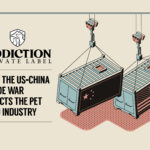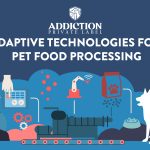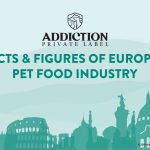Concerns over the environmental impact of pet food production has grown among advocates and consumers in recent years.
This has prompted the industry to reflect on its expanding ecological footprint that goes alongside its exponential growth, especially in the premium and humanized sectors.
The call for greener brands is not new. Pet food manufacturing, like that of human food production, has long been called upon by environmentalists to check on their manufacturing processes and sourcing procedures to ensure that less or little impact is exacted on global ecology.
Like humans, pets have a large ecological footprint, partly due to previously unmonitored manufacturing processes of pet consumables, leading some to claim that even a medium–sized dog could have the same ecological footprint as an SUV.
Many of the current pet food trends – those linked to humanization especially – are proving to be quite challenging, given that although most of these tend to be emotionally appealing, many of the processes involved in producing them are turning out to not be as environmentally sustainable as first thought.
Understanding ecological footprints
An ecological footprint refers to a measure of human demand – or in this case, of pet demand – on the Earth’s ecosystem. It measures the supply and demand of goods and services for the entire planet by assuming that the whole (pet) population follows a specific lifestyle relating to such demands.
Ecological footprints vary, primarily due to advancements in technology, but nonetheless, it is a standardized measure that assesses how much productive land and sea area is needed to supply the resources that a (pet) population uses and then contrasts that with the Earth’s capacity to absorb the impact of waste, while it tries to regenerate itself and the resources that were used.
Here’s how the ecological footprint works.
Cleaning up the act
Producing the meat to create pet food seems to be one of the major reasons for pet food production’s growing environmental impact.
With a growing pet ownership base across key markets globally, the demand for meat used in pet food production has also risen in recent decades. This in turn requires more land, more water and other resources and in return, creates more pollution from the animal sources of these meats.
The amount of meat produced to meet the pet food industry equates to around 64 million tons of carbon dioxide a year, and that is something that’s worrying many advocates within and outside the pet food industry.
Given these uncomfortable statistics, manufacturers are called to go green not just by nature advocates but by consumers themselves, whose buying patterns have recently shifted to brands that are perceived ‘cleaner.’
So impactful is the ‘clean’ movement that consumers have become more interested on clean label ingredients instead of product descriptions or the brand name itself.
For pet food manufacturers, this can likewise imply that a new checklist needs to propel private label production: one that is based on consumer perceptions of what is good for their pets, not just because the product label says so, but because it is so.
Doing our part
Manufacturers should consider stepping back and introspecting on how they go about producing their brands, and how they could partner with a someone who can help provide more sustainable practices that get them the most out of pet food without harming the environment in the long haul.
Environmental impact should be at the top of any manufacturer’s priority. At Addiction Foods, we ensure that all our premium ingredients are sustainably sourced through certified partners.
This includes partnership with recognized organizations like the Monterey Bay Aquarium’s Seafood Watch and participating in government efforts to maximize the use of novel proteins such as the New Zealand Wild Brushtail and Wild Kangaroo.
It is a commitment that we extend to those who partner with Addiction Foods in developing formulations for brands intended for both mature markets like the US and burgeoning markets like China.
Trust Addiction Foods Private Label in ensuring that your brands are manufactured for you in the most environmentally appropriate manner possible, given our decades of expertise and verified experience in pet food manufacturing.
Discover what Addiction Foods can do for you.
Ask us today about partnerships.
Interested in reaching new markets, like China? Here’s what you need to know.
Follow us on LinkedIn for more updates on trends, news and everything pet food.










